
by Beata Wierzba | Sep 22, 2023 | Advocacy, Community Solar, Electric Vehicles, Legislative Watchlist, Local Government, Policy, Solar
The 2023-24 legislative session in Wisconsin is nearing the halfway point. Much has happened in the last year, and we are hoping to make great strides by the end of the current legislative session.
This year’s biennial budget bill for 2023-25 had several provisions we were monitoring — however, most of them were removed from the final version. The budget did ultimately include a $75 increase to annual registration fees for electric vehicles.
Despite the outcome of the budget bill, there are still opportunities in several key areas. One of our main focuses of late has been net metering and the two rate cases before the Public Service Commission of Wisconsin (PSCW). We are also working to remove barriers in the effort to build EV charging infrastructure while also supporting bills that would allow Wisconsin residents to participate in community solar projects.
Net Metering Proposal
In most states, when you generate electricity from solar panels on your property, you get a credit for the energy you produce, reducing your electricity purchases from the utility and some compensation for sending any excess electricity from your system back to the grid. RENEW Wisconsin has been active in two net metering rate cases before the Public Service Commission of Wisconsin (PSCW).
In the Alliant Energy rate case, RENEW and Alliant have agreed to preserve net metering for two years and have created a clear pathway for future rooftop solar installations. At the end of the two-year period, new Alliant solar customers will shift away from net metering and into Power Partnership, a proposal that will support the sustainability of the solar industry.
RENEW still believes that net metering is the best policy for Wisconsin’s current solar industry, and our opposition to MGE’s proposal continues. The comment period for MGE’s rate case before the PSCW has closed. A final decision from the PSCW in both the MGE and Alliant rate cases is expected in late October or early November.
- RENEW staff has testified in both rate cases before the PSCW.
- RENEW has encouraged and empowered our members and the public to support net metering through the public comments process.
- RENEW staff is engaged with state legislators, making them aware of how these rate cases will affect their constituents and the solar industry in general.
Electric Vehicle Charging
Recognizing the need for better access to charging stations to support the electric vehicle industry, RENEW is working to support efforts to remove some of the barriers created by restrictions in state law. State law limits private companies’ ability to build charging stations by only allowing electric utilities to sell electricity to the public.
- RENEW anticipates legislation (likely led by Sen. Howard Marklein) to be introduced this fall to remove some of these barriers.
- RENEW is seeking a proposal that would allow non-utilities to provide electricity at charging stations by using the national standard of charging by the kilowatt hour rather than by the time it takes to charge.
- RENEW staff have been in regular communication with various interested parties and we hope to see movement on this proposal soon.
- To support these efforts, we also have preliminary plans to host educational, lobbying, and test-driving electric vehicle events through the fall.
Community Solar
Current Wisconsin state law limits solar installations to larger utility-built projects and smaller rooftop installations on private property of individual homes or businesses. What is lacking is the option for community-based projects for individuals to participate in solar energy generation even if they do not own the building or have adequate sun exposure or roof space to accommodate solar installations.
RENEW Wisconsin has joined a coalition of groups that support community solar projects that would provide new opportunities for the industry and customers. Two bills were introduced earlier this year that would allow Wisconsin residents to participate in community solar projects. SB 226 was authored by Sen. Duey Stroebel, and AB 258 was authored by Rep. Scott Krug.
- RENEW is encouraging the chairman of the committee, Sen. Julian Bradley, to schedule a hearing in October in the Senate Committee on Utilities & Technology.
- More than 30 organizations are listed as lobbyists on the proposal, with an almost equal number for and against.
- Utility groups and labor representatives have strongly opposed the bills.
- Supporters along with RENEW include the Alliance of WI Retailers, NAIOP Commercial Real Estate Association, League of WI Municipalities, WI Property Taxpayer Association, and Fieldworks Power.
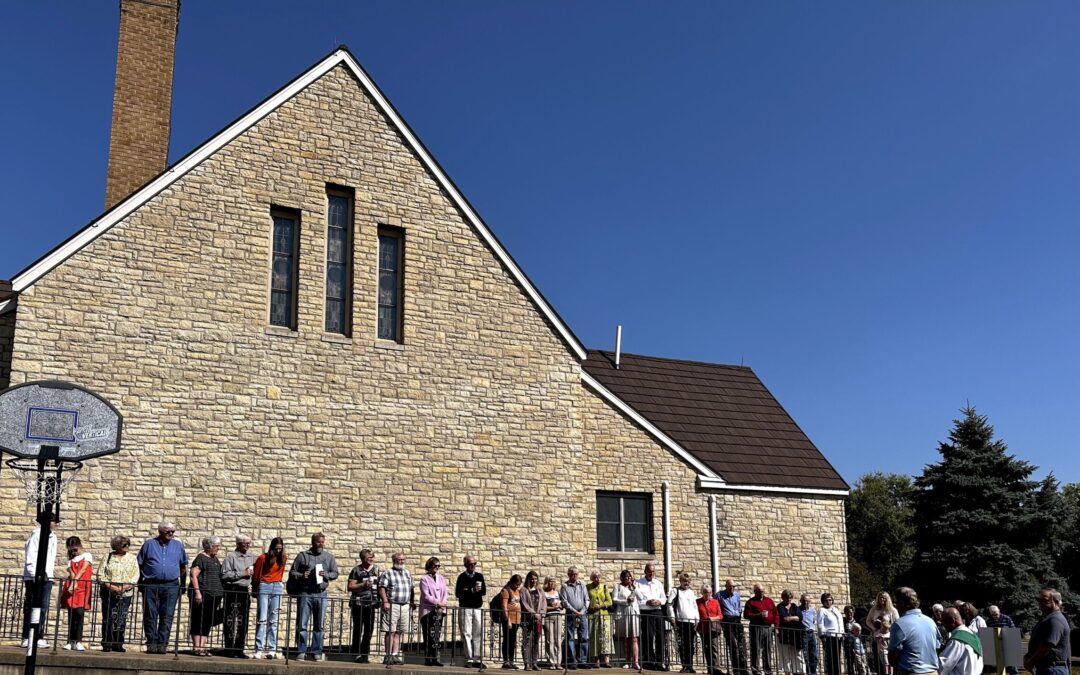
by Lauren Cohen | Sep 19, 2023 | Solar, Solar for Good
On Sunday, September 17, Peace Lutheran of Pigeon Falls hosted a solar dedication ceremony to celebrate their new solar array. The 44.3-kilowatt array was installed by Ethos Green Power and is expected to produce 61,000 kilowatt hours of energy annually.
Peace Lutheran of Pigeon Falls is a congregation of the Evangelical Lutheran Church in America and has served the community for over 150 years. The installation will help the church with reducing its reliance on conventional energy sources, ultimately saving on energy costs.
The journey to embrace solar was a collective endeavor, made possible through dedicated support and funding. Notably, Peace Lutheran of Pigeon Falls received funding from Focus on Energy, Solar for Good, Ethos Green Power, and individual donations from its congregation.
The commitment to this initiative would not have been possible without the support of its congregation members, whose dedication to environmental stewardship and care for creation played a pivotal role.
“Our new solar array is a testament to our ongoing dedication to caring for God’s creation,” said John Skoug, Member of Church Council and Creation Care Team Lead. “This project, in conjunction with our geothermal heating and cooling system, signifies two major steps our church has taken to reduce our environmental impact while simultaneously saving on energy costs.”
Peace Lutheran has undertaken a series of green initiatives. In addition to its solar array, the church has embraced geothermal heating and cooling, upgraded to energy-efficient LED lighting, and implemented a recycling program.
As Peace Lutheran of Pigeon Falls celebrates the completion of their solar project, they stand not only as an example of environmental stewardship within their community but as a model for churches throughout Wisconsin. They have shown that renewable energy is not only an environmentally conscious, but a smart financial decision.
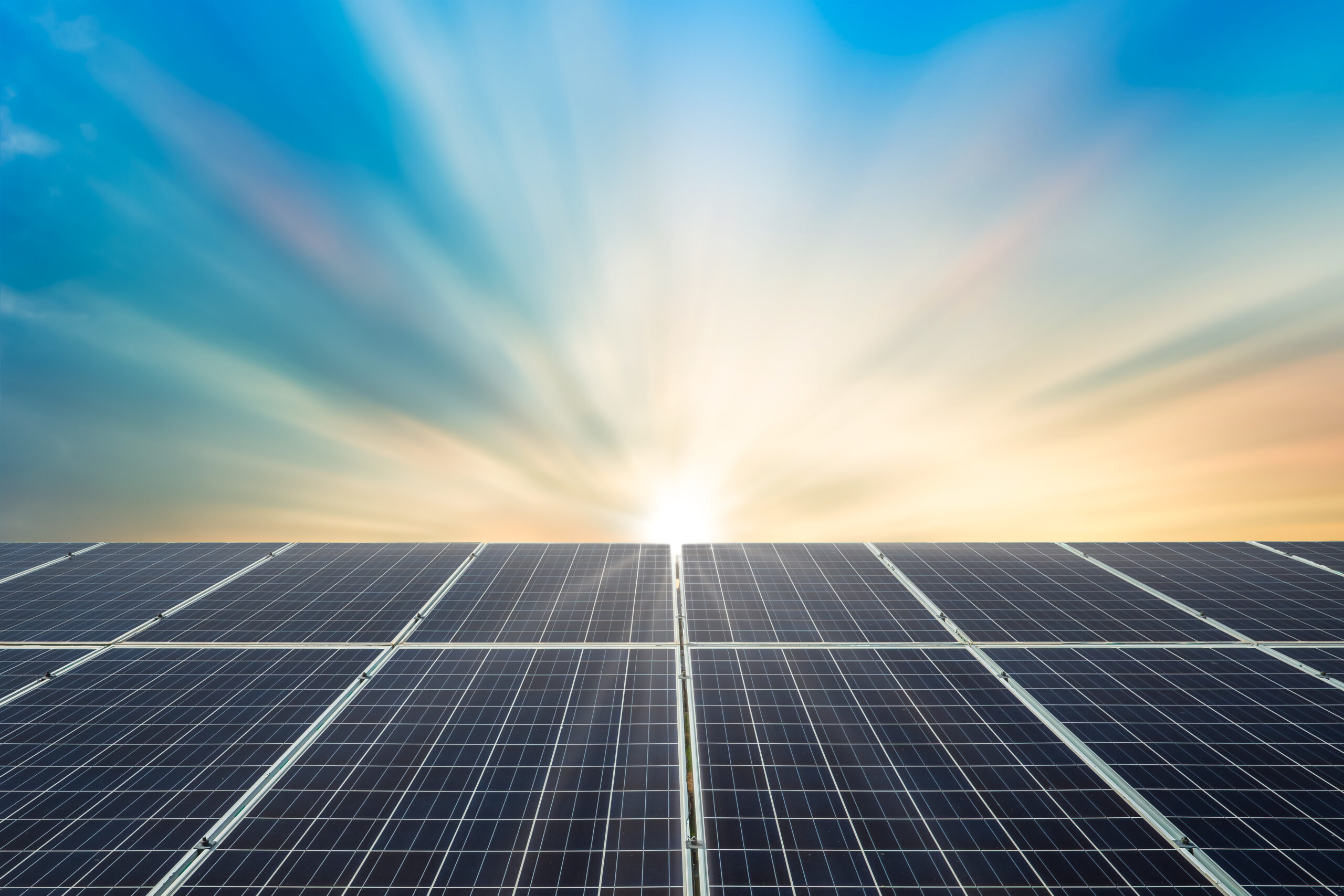
by Alex Beld | Sep 15, 2023 | Advocacy, Public Service Commission, Solar, Utility Scale
The Elk Creek Solar project, located in the Township of Spring Brook in Dunn County, was approved this month by the Public Service Commission of Wisconsin (PSCW). The 300-megawatt (MW) solar project is paired with a 76.6 MW battery energy storage system and is expected to go online by the spring of 2026.
As designed, Elk Creek Solar would supply homegrown, affordable, emission-free electricity to power the equivalent of approximately 60,000 homes for at least 30 years. RENEW Wisconsin submitted testimony in support of the project, and we are excited for construction to begin.
The developer of the project, TED Renewables, has been engaged and transparent with the Springbrook community throughout the approval process by providing detailed information on the benefits and timeline of the project. Beyond generating revenue for local schools and government services, the project is expected to create upwards of 650 jobs during the construction phase and 3-4 highly skilled long-term jobs.
According to TED Renewables, the annual tax revenues for all taxing districts will exceed $1.2 million. As stated in the La Crosse Tribune, “Spring Brook township of $500,000, Dunn County of $700,000 and the Elk Mound Area School District of $60,000.”
Construction is projected to start in the fall of 2024. Throughout the life of the project, the landowner will retain the title to the land and sign a 30-year lease, with the option for a five-year extension. At the end of its operational life, the equipment will be recycled or reused, and the land will be restored. By giving the soil time to rest and planting deep-rooted plants, the quality of the soil will be improved substantially by the time it is once again ready for agricultural use.
Elk Creek Solar is the 17th project larger than 100 MW the PSCW has approved since 2019, totaling 3,249 MW for Wisconsin. Several other projects, including Silver Maple Solar, are awaiting approval.
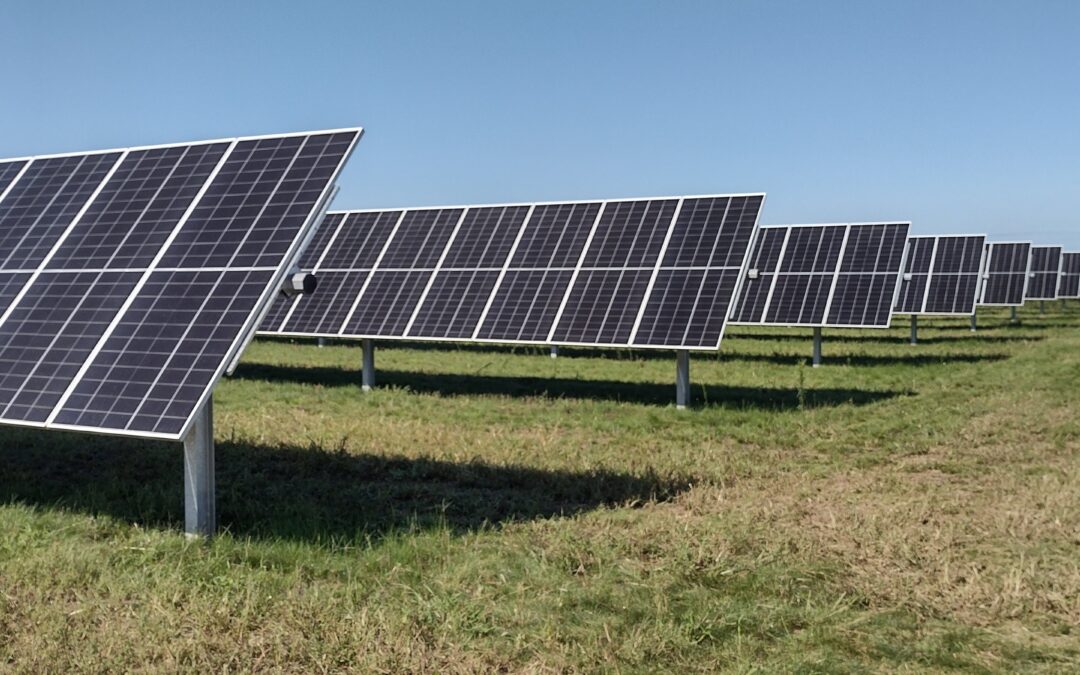
by Michael Vickerman | Sep 13, 2023 | PSC Priorities, Public Service Commission, RENEW Wisconsin, Renewables, Solar, Utilities
A 200-megawatt (MW) solar project, Silver Maple Solar, has been proposed in Fond du Lac and Winnebago Counties. If approved, Silver Maple Solar is expected to begin producing enough clean energy to power 35,000 Wisconsin homes by the end of 2025.
Solar power projects larger than 100 MW must gain approval from the Public Service Commission of Wisconsin (PSCW) before they can proceed to construction. Along the way, there are opportunities for public comment, including at the PSCW. Earlier this summer, RENEW Wisconsin submitted testimony in support of Silver Maple Solar to the PSCW. Now that the public comment period is open, you can share your support for this project as well.
Silver Maple Solar represents a significant economic investment in rural southeastern Wisconsin, providing steady revenues to area landowners and communities while generating emission-free renewable electricity for more than 30 years. The developer of the project, Leeward Renewable Energy, has provided a high-level overview and a map of the project to help the public better understand its benefits.
Since 2019, the PSCW has issued approvals for 17 solar power projects across Wisconsin, totaling 3,249 MW. With the addition of Silver Maple, solar energy will make up 10% of Wisconsin’s electricity production, the highest share for a state in the Upper Midwest.
Help us demonstrate Wisconsin’s enthusiastic support for projects like this by submitting a comment in support of Silver Maple Solar. Be sure to specifically reference the project and the benefits that it can bring to Wisconsin. The deadline to submit comments is October 13, 2023.
We’ve included a sample message to help you get started. Please keep in mind that the PSCW allows one comment per case and that customizing your message will have a greater impact.
Sample Comment
I’m writing in support of the Silver Maple Solar, under review in Docket No. 9813-CE-100. This project would support local economies and keep energy dollars in state by producing homegrown, renewable energy right here in Wisconsin.
Beyond the economic benefits, the Silver Maple Solar project will also help to displace carbon dioxide, support grid stability, and provide Wisconsinites with an affordable source of electricity. With available land and appropriate infrastructure, projects like this make sense for Wisconsin.
I respectfully encourage the PSCW to rule that Silver Maple Solar is in the public interest and issue a permit enabling the project to proceed to construction. Thank you for your consideration of my views.
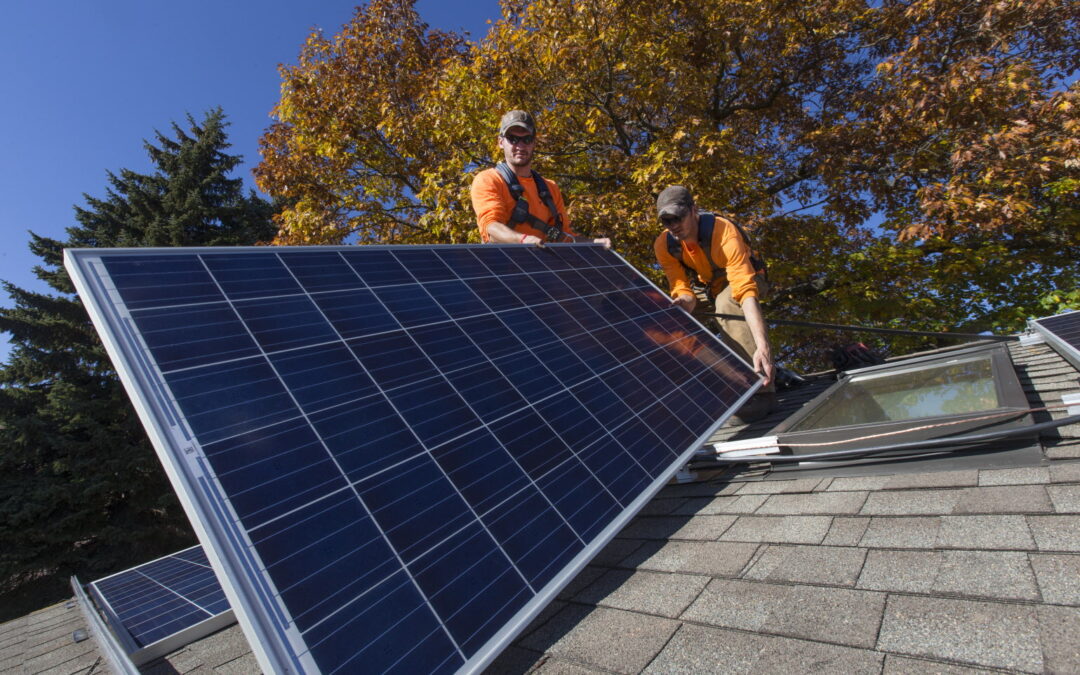
by Lauren Cohen | Sep 8, 2023 | MadiSUN, Press Release, Solar, Sustainable Business
Madison-based businesses and nonprofits have a unique opportunity to embrace the power of clean energy while easing financial burdens through MadiSUN’s Solar for Business and Backyard Solar Grant programs. The deadline to apply for the Backyard Solar Grant is October 1, 2023. Businesses have until December 31, 2023.
MadiSUN’s Solar for Business and Backyard Solar Grant programs, administered by RENEW Wisconsin, align with the City of Madison’s commitment to achieve 100% renewable energy by 2050. Collectively, the programs have $75,000 in grants available for Madison-based businesses and nonprofits to utilize. Businesses can receive up to $10,000. Nonprofit organizations and affordable housing providers can receive up to $20,000.
“Solar power isn’t just about reducing our carbon footprint; it’s a smart economic choice,” said Lauren Cohen, Program Coordinator of the MadiSUN programs. “With our Solar for Business and Backyard Solar Grant programs, we’re not only helping Madison’s businesses and nonprofits adopt clean energy but also reducing their financial loads.”
Adopting solar has become a strategic move for businesses and nonprofits alike as the cost of solar drops. Transitioning to solar becomes even more affordable when organizations pair the Inflation Reduction Act’s 30% Solar Investment Tax Credit and the grants through MadiSUN.
“The MadiSUN Backyard Solar grant helped make our solar array much more affordable,” said Gabrielle Hinahara, Board Member at the Madison Area Cooperative Housing Alliance and Backyard Solar Grant Recipient. “Our solar array is set to provide 97% of the electricity needs for our 11-person house, which contributes to long-term affordability for our residents.”
As the deadline approaches, organizations are encouraged to seize this opportunity to go solar, reduce upfront costs, and contribute to a more sustainable future. Interested applicants should reach out to MadiSUN@renewwisconsin.org.
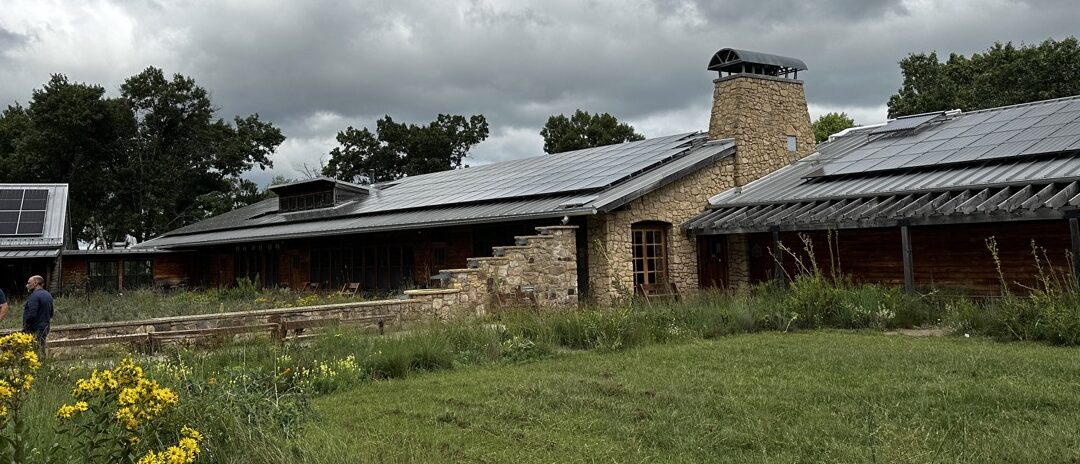
by Lauren Cohen | Aug 29, 2023 | Solar, Solar for Good, Sustainability
On Saturday, August 26, The Aldo Leopold Foundation Legacy Center celebrated the completion of its newest solar array. Since the conception of the Legacy Center, the Foundation has aimed to achieve what Aldo described as, “The oldest task in human history: to live on a piece of land without spoiling it.”
The Aldo Leopold Foundation is a nonprofit conservation organization with a mission of fostering a land ethic through the legacy of Aldo Leopold. As described by him, the land ethic involves recognizing ourselves as “plain members and citizens” of the land community and treating our fellow members with care and respect.
The Foundation’s dedication to the land ethic is underscored by its new 90-kilowatt solar installation completed by All Sky Energy. This is the Foundation’s second solar installation at the Aldo Leopold Legacy Center, boosting the organization’s goal of achieving net-zero. As a complement to the new solar array, the foundation has also installed three electric vehicle charging stations and added two electric trucks to its fleet.
This project was made possible through the collaborative efforts of All Sky Energy, The Couillard Solar Foundation, OneEnergy Renewables, RENEW Wisconsin, and the Wisconsin Public Service Commission. The main source of funding came from a $152,000 Office of Energy Innovation grant and panel grants from OneEnergy Renewables and Solar for Good.
Buddy Huffaker, President and Executive Director of the Aldo Leopold Foundation, highlighted the significance of this endeavor, stating, “Obviously, this project benefits the Leopold Foundation by reducing our expenses, but we are most excited about the opportunity to continue demonstrating a conservation ethic that informs and inspires others to transition to renewable energy and electrification.”
This initiative resonates deeply with Aldo Leopold’s philosophy of living harmoniously with the land. The Aldo Leopold Foundation aims to lead by example by showcasing how investments in renewable energy promote sustainability while creating a tangible connection between modern living and the land ethic Leopold championed.
With thousands of annual visitors to the Legacy Center, the Aldo Leopold Foundation serves as an example for the broader community. This latest effort to electrify the land ethic has the potential to inspire others to embrace renewable energy solutions and drive rural electrification enhancements.






